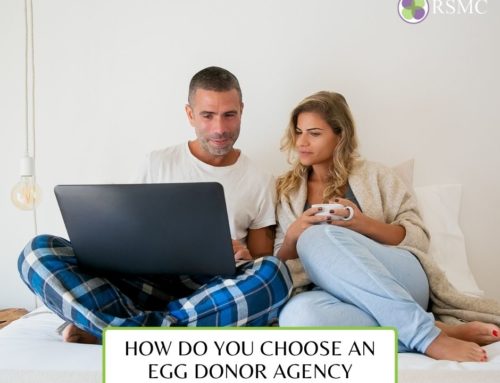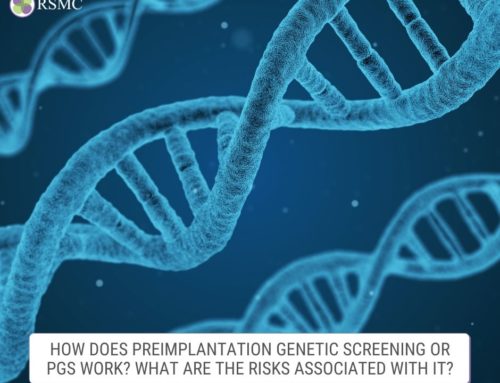Donating your eggs is a selfless act that can help a couple or individual start their own family. If you are thinking about egg donation then you probably have a lot of questions about the initial requirements and the process.
Our experts at Reproductive Sciences Medical Center have answered some of the most asked questions about egg donation, what you can expect from the process, and the things to look out for to ensure your safety throughout the process.
FDA has Strict Regulations About Egg Donation
The FDA treats eggs like any other human organs when it concerns donations. There are lots of rules and regulations in place to become an egg donor, the same as with any other tissue donation.
There Are 3 Ways to Donate Eggs – Through an Agency, A Clinic That Also Runs Donor Service Or Direct Egg Donation
Agencies actively recruit donors and can pay more depending on the specifics of a donor. Compensation for eggs donors varies. Many agencies will base it on the local cost of living and may cover costs such as lost wages, transportation, and other expenses.
In California, compensation for egg donors ranges from $6000 to $12000. Going through a reputable egg donor agency, you can earn up to $25,000 for donation. You can also seek out a clinic with donor services on your own instead of an agency recruiting you. A direct egg donation is also an option, where a donor can donate eggs directly to a family member or friend. This eliminates the process of matchmaking by an agency. Some families have very specific requirements that the donor must meet, such as an Ivy league school education. In this case, they may place an ad in a local paper.
Accepting a Large Payout for a Specifically Directed Egg Donation Isn’t Always Recommended
The compensation guidelines are specifically in place to make the process of egg donation not financially forced. As a leading fertility clinic and egg donor agency, we highly discourage that practice. Our goal is to identify women that are doing it for the right reasons. We’re always looking for women who view the process as helping someone else while also helping themselves. Oftentimes, advertisements place a bigger emphasis on the financial aspect. Strictly viewing egg donation as a financial gain might make a woman regret her decision in the long run. This could impact her for the rest of her life.
The recommendation is to Only Donate Six Times
This is to ensure the health and safety of the donor, and also so there aren’t a bunch of half-siblings running around unknowingly. There isn’t a national registry or disclosure policy, so parents do not compelled to tell their children that they came from an egg donor. This is the reason why the six-time limit is not very well monitored. It’s possible that someone could donate six times at one clinic and then try to donate at some other clinic. The same goes for sperm donation as well. Sperm banks also have a limit to the number of times you can donate. These are the guidelines that the American Society for Reproductive Medicine has set.
A Series of Psychological and Physical Screenings Are Required Prior to Egg Donation
At Reproductive Sciences Medical Center, we want to make sure that our donors are in the right mindset and are comfortable going through the egg donation process.
According to FDA regulations, a potential egg donor may not qualify if they’ve gotten a tattoo within the last 12 months where sterile procedures were not in use. Your travel history may also be checked to ensure that you haven’t been to a Zika-affected country in the past six months. During the physical exam, you can expect blood work and an ultrasound to see how many eggs you have. All of this information is very valuable to a potential egg donor. Regardless of whether she qualifies at the moment or not, valuable information about her own fertility and reproduction is gained.
The Screening Process Can be Intensive And Only a Small Percentage of People Emerge as Eligible for Egg Donation
The rate of eligible people for egg donation varies from clinic to clinic. This is due to the very strict screening process. At many agencies, only a small percentage of people actually become egg donors. There are a variety of factors such as BMI that lead to a lot of dropouts.
STI History Can Also Impact Eligibility
The screenings are mostly targeting HIV, hepatitis, gonorrhea, and chlamydia. HPV is incredibly common in the young and sexually active population and is looked at on a case-by-case basis. According to FDA regulations, you cannot donate your eggs if you have been treated for gonorrhea, or chlamydia within the last 12 months. Also, if you test positive for Hepatitis B, Hepatitis C, or syphilis you can’t donate since those can be passed on.
Whom to Consider a Good Fit As a Potential Egg Donor?
Based on our requirements at Reproductive Sciences Medical Center, the best candidates for egg donation are women who have graduated from college, are between the ages of 19 and 29, and are non-smoker. All of our potential donors must have a BMI less than 28.
You Will Probably Get a Match Before Completing the Majority of the Process
Before you start the screening process, you will be matched with an Intended Parent. Some of the eggs donated will be frozen and used later, however, is many cases the donor and the recipient will be undergoing treatment at the same time. This way the eggs will be “fresh” and fertilized at the time of collection.
Find a Reputable Clinic For Egg Donation
You should do your research before selecting a clinic. Call clinics that seem like they may be a fit for you and tell them you would like to become an egg donor. Ask them questions about their procedures and the risks associated with donating your eggs. Make sure that they adhere to ASRM guidelines.
Make Sure to Protect Your Anonymity
You do have to disclose certain personal information and medical history as part of the process. However, the clinic should protect your privacy and anonymity from Intended Parents. If not, it’s a big red flag. You should not feel any pressure to disclose your identity to Intended Parents. Even though you are being compensated, you should still feel empowered to speak up.
The Actual Process Takes Several Weeks
At Reproductive Sciences Medical Center, the egg donation process starts with an online application. If the potential donor is accepted, we will create a profile that highlights their greatest qualities and present them to the Intended Parents. Once matched, you will move on to the screening process. This includes a medical screening, psychological evaluation, and background check. You will have to sign a contract. After that a coordinator is assigned to you. Your coordinator will discuss your in-cycle calendar, birth control, and medications. In terms of medications, you will be taking hormone injections for 10-12 days in order to stimulate your eggs. The medications are self-injectable.
The next step would be to come out to our clinic in San Diego, California for egg retrieval. We will cover all necessary expenses. One of our physicians will retrieve the eggs vaginally through a minimally invasive procedure. The procedure itself takes no more than 30 minutes, but you will be at our clinic for a couple of hours. Once you have clearance to leave the clinic, a post-retrieval check-up will be scheduled at a monitoring center that is close to you.
Avoid Intercourse Until Your Next Period After Completing The Egg Donation Process
There is a chance that all the eggs might not have been retrieved during the process. Since you did inject yourself with hormones, you will be very fertile after the retrieval. We do our best to retrieve every egg. However, there’s no guarantee that one wasn’t left behind. We highly advise our patients to abstain from intercourse until their next period just to be safe.
Know That All Types of Women Donate Eggs
Women from all walks of life choose to donate their eggs. We’ve seen the college student who is looking to pay off their student loans or may want to travel after graduation, the artist who wants to supplement their income, and the very spiritual person who just wants to help another family.
It’s Not All About Money
This is one of the biggest misconceptions about egg donation. Women don’t always donate for compensation, but to help someone start their own family. It is quite possible that she knows someone who is struggling with infertility. Donors go through a lot to donate their eggs. If you break it down into hourly compensation you will quickly realize this isn’t why they do it. Some of the best donors have a personal story or know a family member or friend who has one. The money does help but helping someone else is a motivating factor.
If you have any questions about the egg donation process and egg donor agency, you can call Reproductive Sciences Medical Center at 858-436-7186 or visit us at fertile.com to learn more.























